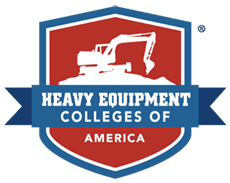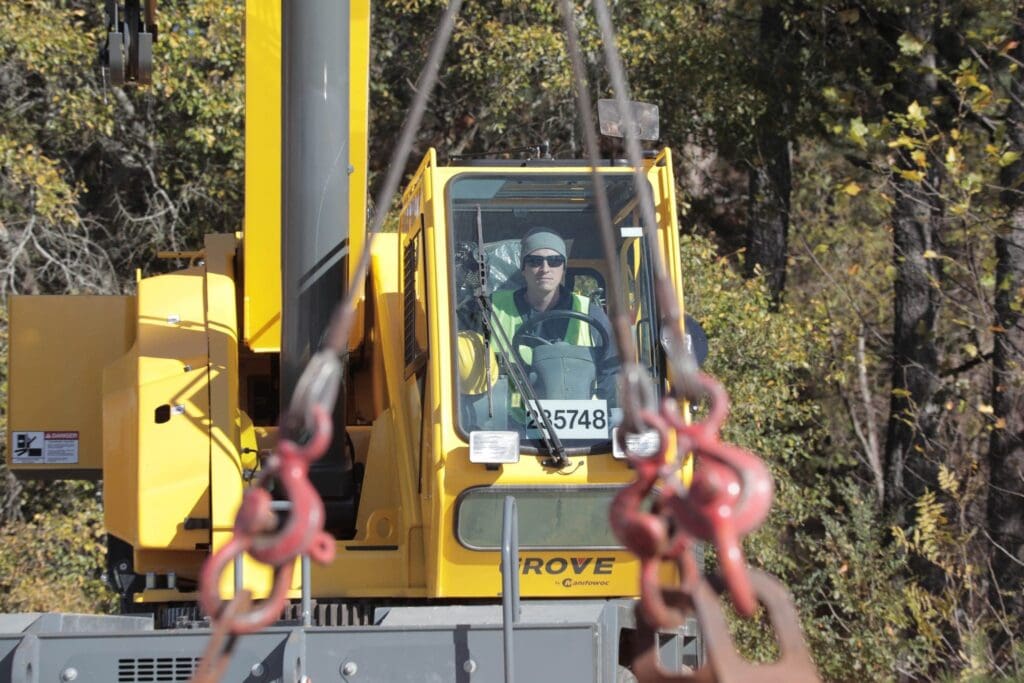According to the Bureau of Labor Statistics, crane operators are projected to play an increasingly important role in society throughout the coming years. Looking for reliable employment? Wondering what a crane operator’s salary is? Find opportunities to get started in training and certification in heavy equipment and crane operation. Learn more about how to become a crane operator and where you can complete crane safety training.
Types of Crane
There are two main types of cranes under which all cranes fall, mobile and fixed. Before a project begins, the correct crane needs to be chosen in order to ensure safety and proper operation. Below is a breakdown of the types of cranes you’d find on a construction site.
Mobile Cranes
Offering greater mobility than a standard crane, mobile cranes are mounted on either crawlers or tires. These cranes are able to navigate around job sites easily while carrying large loads. Certain mobile cranes can even be driven on a highway. Mobile cranes include Carry Deck Crane, Crawler Crane, Floating Crane, Rough Terrain Crane, and Truck Mounted Crane.
Fixed Cranes
As the name implies, fixed cranes are typically fixed in one location or spot. To get them where they need to be, most fixed cranes need to be brought in and assembled on site. What makes these cranes advantageous on a worksite? Despite not being mobile, fixed cranes offer the ability to lift heavier loads and reach greater heights. Examples of fixed cranes include Bridge/Overhead cranes, Gantry Crane, Bulk-handling Crane, Hammerhead Crane, Stacker Crane, Telescope crane, Tower Crane.
Crane Safety
Safe crane operation starts by ensuring that only qualified personnel are operating it. Cranes represent a hazard on a worksite if not properly used. Help prevent crane-related accidents by paying attention to the following crane safety tips.
Prior to Operation
Before you even turn the crane on, there is a list of safety procedures that you should follow. Read the operator’s manual carefully. Checking for load capacity limits, read about safety mechanisms, and understand what each control does. You’ll also need to perform daily checks to ensure that the crane can operate safely. This includes checking tire conditions, oil levels, pressure gauges, and more.
During Operation
After going through safety checks and inspections, it’s time to start lifting loads. If you are operating a mobile crane, you’ll want to avoid and clear any obstacles in your intended path. An example of an obstacle that can typically be moved but must be avoided is a power line or similar hazard. When operating a mobile crane, ensure that they are carefully stabilizing the crane before rigging. Improper stabilizing leads to crane tip-overs. During crane operation, it is important to always communicate with your crew which may include the use of hand signals. Finally, never take on complex lifts alone. Always thoroughly plan out your lifts.
Crane Safety – Tips for Safe Lifting
How To Become a Crane Operator
To become a crane operator, you must be at least 18 years of age and meet certain physical/medical requirements. You’ll also need to comply with the National Commission For the Certification of Crane Operators (NCCCO)’s Substance Abuse Policy and follow the NCCCO Code of Ethics.
Physical Requirements
If you want to know how to become a crane operator, you’ll need to meet ASME physical requirements, which may include holding a Department of Transportation Medical Examiner’s Certificate. The ASME B30 physical standards for safe crane operation include:
- 20/30 vision in one eye and 20/50 in the other (with or without corrective lenses)
- Ability to distinguish colors
- Adequate hearing (with or without the use of a hearing aid)
- Meeting the standards of strength, endurance, coordination, and reaction time related to operational demands
- Normal level of depth perception and field of vision
- No history of seizures or loss of physical control.
Do you meet these qualifications? Then your next step is finding a Certified Crane Training program.
Enroll in Crane Training School
When you are ready to find out how to become a crane operator, enroll in crane operator school. You’ll need to find one that meets your needs and is NCCCO accredited. Successful completion of training, and the ensuing certification, can lead you to a rewarding career in the heavy equipment industry. But how will you choose between schools and programs? Beyond finding an accredited program, you need to think about what you want from the program you are choosing. Are there additional benefits? What happens after you complete your program? Find your answer in the section below.
Get Trained at HEC
The Heavy Equipment Colleges of America has helped countless individuals, including veterans, find rewarding careers in the heavy equipment industry. We have multiple locations across the country, with programs varying location by location. We even have locations dedicated to enrolling veterans and helping them navigate the transition from military to civilian life.
We’re committed to your success. At HEC your benefits go beyond training. You’ll also get help with building your resume and sharpening your interviewing skills. We’ll even contact potential employers on your behalf. Find the program that fits you. Complete it in as little as three weeks. Put yourself on the path of a new, exciting career with HEC.

